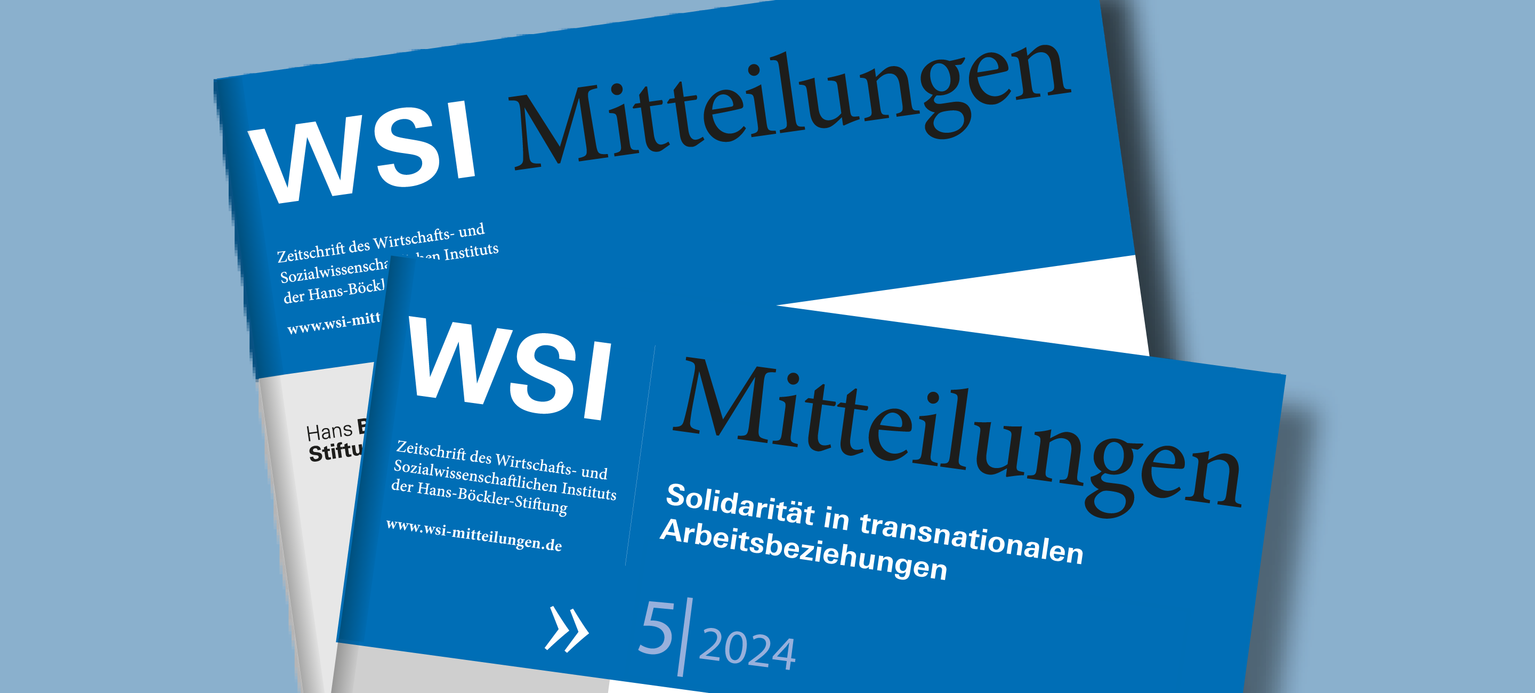Dingeldey, Irene / Ludwig, Carmen / Seeliger, Martin : Solidarität in transnationalen Arbeitsbeziehungen. Zwischen normativem Anspruch und komplexer Interaktion
DOI: 10.5771/0342-300X-2024-5-327
Seiten 327–336
Zusammenfassung
Transnationale Solidarität in den Arbeitsbeziehungen wird vielfach als „Mythos“ bezeichnet, da sie überaus voraussetzungsvoll ist. Der Einführungsbeitrag betrachtet transnationale Solidarität als multidimensionales Konzept: Sie inkludiert soziale und politische Formen der Solidarität, die durch verschiedene Motivationen geprägt sind. Konkrete Aktionen reichen von einseitiger Hilfe in Notsituationen bis hin zu Formen der grenzüberschreitenden Mobilisierung und der Herausbildung trans- oder internationaler Organisationen. Letztere setzen Kooperation auf der Basis von Reziprozität voraus. Zentral ist dabei, dass eine neue Identität in Verbindung mit entsprechenden Narrativen entsteht, worauf ein über die Interessen der ursprünglich (auf den nationalstaatlichen Rahmen beschränkten) Gruppe/Gemeinschaft hinausgehendes Handeln aufbaut. Dies kann z. T. auch die Inkaufnahme von Nachteilen beinhalten, um für ein gemeinsames, übergeordnetes Ziel einzutreten und als eine inklusive Form der Solidarität verstanden werden. Die Beiträge im Heft verdeutlichen sowohl die Schwierigkeiten, transnationale Solidarität herzustellen, als auch die Möglichkeiten, wie das der Solidarität innewohnende gesellschaftliche Veränderungspotenzial besser genutzt werden kann, um gesellschaftlichen Zusammenhalt auch global zu stärken. Dabei ergibt sich ein Kontinuum, das (neue) Formen des transnationalen Partikularismus bis hin zum Universalismus als globaler Solidarität zwischen Beschäftigten sowie mit anderen gesellschaftlichen Gruppen beinhaltet.
Schlagworte: Industrielle Beziehungen, Gewerkschaftspolitik, Internationalisierung, Solidarität
Abstract
Transnational solidarity in labour relations is often characterised as a ‘myth’, because it is full of preconditions. The introductory article considers transnational solidarity as a multidimensional concept: It includes social and political forms of solidarity that are characterised by various motives. Specific actions range from unilateral help in emergency situations to forms of cross-border mobilisation and the formation of trans- or international organisations. The latter presuppose cooperation on the basis of exchange or reciprocity. The central point is that a new identity is emerging in connection with corresponding narratives, which is based on actions that go beyond the interests of the original group/community (limited to the national framework). This can sometimes also include accepting disadvantages in order to promote a common, overarching goal and in principle be outlined as an inclusive form of solidarity. The articles in this issue illustrate both the difficulties of building transnational solidarity and the ways in which the potential for social change inherent in the concept of solidarity can be better harnessed to strengthen social cohesion globally. At the transnational level, a continuum opens up that includes (new) forms of transnational particularism up to universalism as global solidarity between employees and with other social groups.
